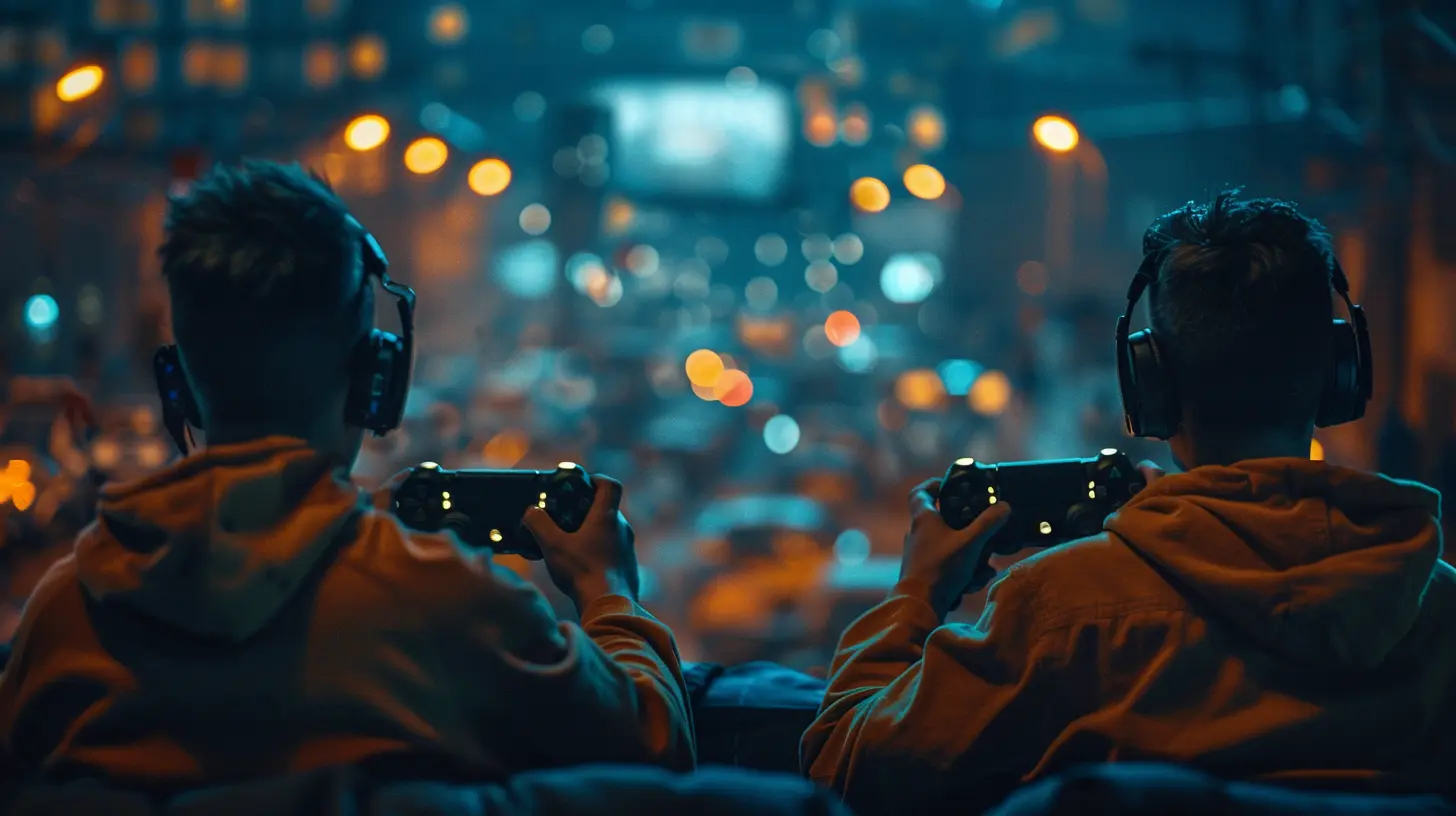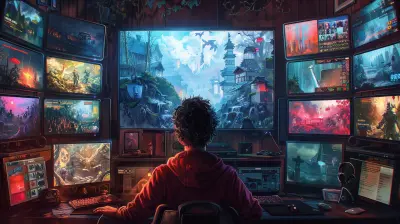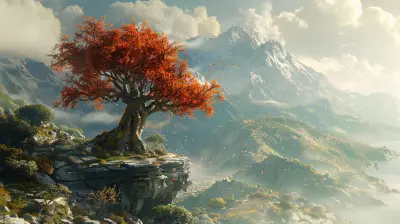The Growth of Modding Communities and Their Influence on Game Longevity
8 October 2025
If you’ve ever played a game way past its prime and thought, “Man, this is still so good,” there’s a solid chance modding had something to do with it. Modding communities are like the secret sauce that keeps a game alive and kicking long after the developers have moved on to shinier projects. These passionate pockets of gamers have been tweaking, improving, and even overhauling games for decades. But what exactly makes modding such a big deal? And why does it play such an essential role in the lifespan of our favorite games? Sit back, grab your controller (or keyboard), and let's dive in.
What Is Modding, Anyway?
Before we go full throttle into this, let’s break it down for the uninitiated. Modding, short for "modification," is when players alter a game to change its mechanics, graphics, or overall experience. This can range from minor tweaks—like adding a new weapon or skin—to absolute madness, like turning a medieval RPG into a survival horror game set in space. Yeah, modding gets wild.For some, modding is about fixing what the developers didn’t (I’m looking at you, buggy launch titles). For others, it’s about adding a personal touch or creating entirely new adventures. Think of it like seasoning a dish to your taste. What’s already great can become phenomenal with the right pinch of creativity.
A Brief History of Modding: From Doom to Skyrim
Modding has been around for a long time—practically as long as gaming itself. If you’re a retro gaming nerd, you probably remember the game “Doom” from the 1990s. Not only was it a landmark title for the first-person shooter genre, but it also kickstarted the modding craze. Developers id Software intentionally designed Doom to make modding easier by allowing fans to create and share custom levels, enemies, and even game modes. This essentially planted the seed for what would grow into a massive, thriving culture.Fast-forward a few decades, and modding has gone from niche hobby to mainstream phenomenon. Games like “The Elder Scrolls V: Skyrim,” “Minecraft,” and “Grand Theft Auto V” have some of the most active and creative modding communities ever seen. Whether it’s creating a Thomas the Tank Engine dragon in Skyrim or designing gorgeous, ultra-HD textures, modders have done it all.
Why Do Modding Communities Thrive?
Ever wonder why modding has become such a big deal? Turns out, it’s more than just people with too much free time tinkering with code. Let’s take a closer look at why these communities are thriving.1. Passion for the Game
Think of modders as the fans who don’t just cheer from the sidelines—they jump into the game, tools in hand, ready to make it better. Modding is fueled by a deep love for the games themselves. When people are this passionate, they’ll pour hundreds (sometimes thousands) of hours into projects just to keep their favorite titles fresh and exciting.2. Creative Freedom
One of the coolest things about modding is that the sky's the limit. Want to add lightsabers to a medieval RPG? Go for it. Curious what “Among Us” would look like with photorealistic graphics? Someone’s probably working on that right now. Modders have the kind of creative liberty that even game developers often dream about—no corporate red tape, no deadlines, just unfiltered imagination.3. Community Spirit
Modding isn’t a solo mission—it’s a team sport. These communities are collaborative, supportive, and ridiculously talented. People share their mods, offer feedback, and even team up on massive projects. It’s kind of like an indie band jamming together, except instead of music, they're crafting maps, skins, and scripts.
How Modding Extends Game Longevity
If you’ve ever been hooked on a game for years, odds are good that mods played a role in keeping things fresh. Here’s why modding is such a game-changer for longevity:1. Fresh Content, Forever
Games eventually get stale. It’s inevitable. But mods can breathe new life into old titles. Picture this: You’ve beaten Skyrim for the fiftieth time and know every quest by heart. Then you discover a mod that adds 100+ hours of new quests, characters, and locations. Suddenly, it feels like a brand-new game.2. Fixing What’s Broken
Let’s be real—some games launch as a hot mess. Bugs, glitches, and questionable design choices can ruin an otherwise great experience. Modders often step in where developers don’t, patching up flaws, enhancing performance, and making the game what it was always meant to be.3. Endless Replayability
Mods create infinite possibilities. From hardcore survival challenges to hilarious meme-worthy changes (hello, Shrek mods), they give players countless reasons to keep coming back. It’s like having a buffet of gaming experiences, all in one title.Famous Games That Owe Their Longevity to Mods
Let’s give props where props are due. Some games are practically immortal thanks to their modding communities. Here are a few standout examples:1. Skyrim
We couldn’t talk about modding without giving Skyrim a standing ovation. Released in 2011, this RPG is still going strong thanks to mods ranging from realistic graphics overhauls to full-scale DLC-sized expansions. There’s even a mod to turn all the dragons into macho Randy Savage. Need we say more?2. Minecraft
Minecraft is basically a sandbox for modding. Players have added custom biomes, creatures, and mechanics that take the game far beyond its vanilla experience. Some mods are so polished, they feel like official updates.3. The Sims Series
The Sims games have some of the most enthusiastic modding communities out there. From custom hairstyles to entirely new gameplay systems, modders have transformed these life simulators into endlessly customizable playgrounds.4. Grand Theft Auto V
GTA V mods are legendary. Whether it’s turning Los Santos into a zombie apocalypse or creating a hyper-realistic driving simulator, the creativity on display here is mind-blowing. Rockstar should probably send modders a fruit basket for keeping GTA V relevant for over a decade.The Challenges of Modding
Of course, it’s not all sunshine and double rainbows. Modding comes with its fair share of challenges. For starters, not all developers are mod-friendly. Some actively discourage or even shut down modding communities (we’re looking at you, Nintendo).There’s also the issue of compatibility. Mods can clash with each other, causing crashes and glitches. Installing 50+ mods at once might turn your game into a digital dumpster fire, and troubleshooting can feel like trying to defuse a bomb. But let’s be honest, the payoff is usually worth it.
The Future of Modding Communities
So, what’s next for modding? With the rise of tools like Steam Workshop and platforms like Nexus Mods, it’s easier than ever for players to create and share their work. On top of that, some developers are embracing modding in big ways. Titles like “Cyberpunk 2077” and “Stardew Valley” actively support modders, while games like “Dreams” and “Roblox” are practically built around customization.As gaming evolves, so too will modding communities. AI tools could make creating mods faster and more accessible, while virtual reality might open up entirely new possibilities for immersive, player-created experiences. Whatever happens, one thing is clear: modding is here to stay.
Wrapping It Up
At its core, modding is about passion, creativity, and community. It’s proof that gamers aren’t just passive consumers—they’re creators, storytellers, and dreamers. Modding keeps old games alive, adds a touch of madness to the mundane, and turns small communities into thriving hubs of innovation. So, the next time you fire up a heavily modded version of Skyrim or install that 4K texture pack for Minecraft, take a moment to appreciate the unsung heroes who make it all possible.all images in this post were generated using AI tools
Category:
Gaming IndustryAuthor:

Emery Larsen
Discussion
rate this article
1 comments
Lulu Webster
Modding communities significantly enhance game longevity, fostering creativity and player engagement long after release.
October 9, 2025 at 3:53 AM

Emery Larsen
Absolutely! Modding communities breathe new life into games, keeping them fresh and engaging for players long after the official support ends.


